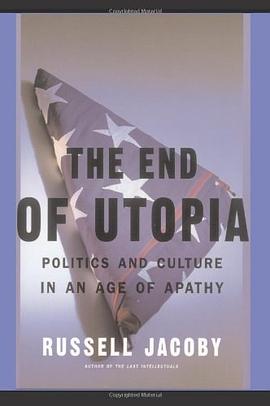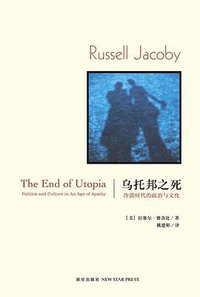The End Of Utopia
豆瓣
Politics and Culture in an Age of Apathy
Russell Jacoby
简介
Amazon.co.uk Review
The near-total triumph of free market capitalism around the world has put a damper on utopian visions, leading many politicians and activists to believe that radical change is impossible, that at best one can hope for slight modifications of the status quo. For Russell Jacoby, this attitude is not so much the result of practicality as it is the product of exhaustion and he argues that, as a society, we can do much better. The End of Utopia is an uncompromising look at the intellectual caliber of late 20th-century liberal and leftist politics, particularly within the academy. He portrays the class of professional intellectuals as insiders adopting the pose of marginality and lambasts the current practicioners of "cultural studies" in particular for their tendency toward banal "analysis" of mass culture in tortured, jargon-laced prose. (In contrast, he holds up Dwight MacDonald, Theodor Adorno and Matthew Arnold as writers who could address mass culture in plain language yet with deep, critical intelligence.) And he proposes that multiculturalism may be little more than a last ditch attempt at differentiation within the one, dominant culture. "What is to be done?" he asks after cataloguing this state of affairs. "The question, routinely addressed to all critics, insists on a practicality inimical to utopianism. Nothing is to be done. Yet that does not mean nothing is to be thought or imagined or dreamed." The End of Utopia shows to what extent the dreams have been abandoned, with the means of rekindling them yet within grasp. --This text refers to an out of print or unavailable edition of this title.
